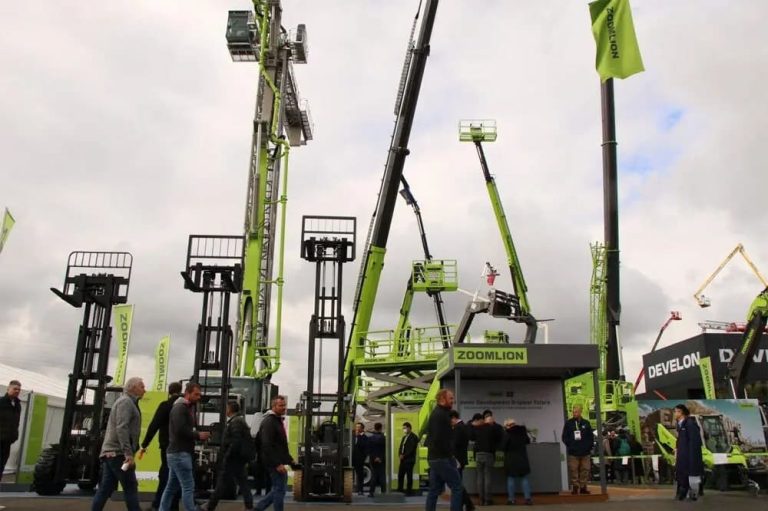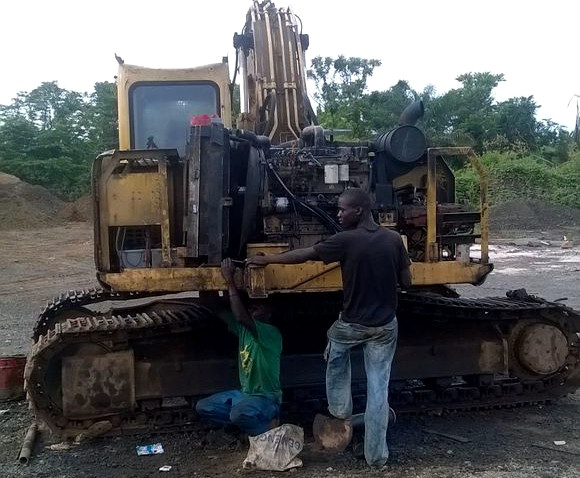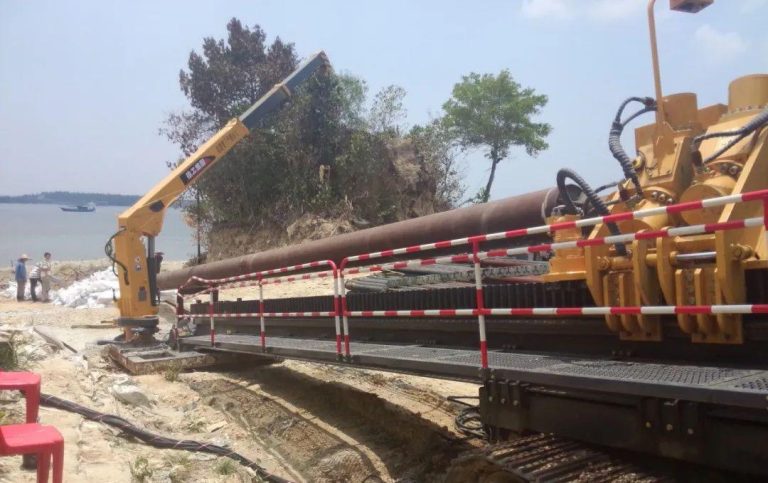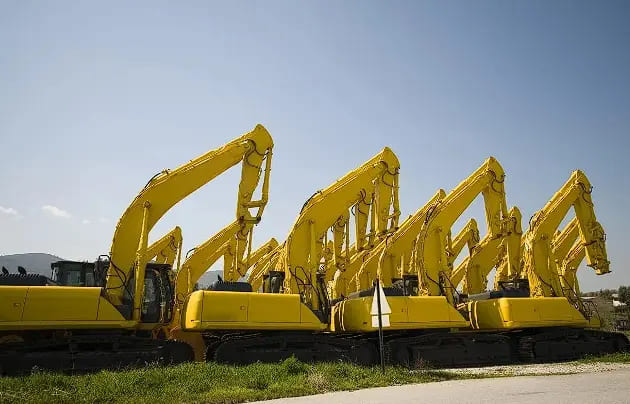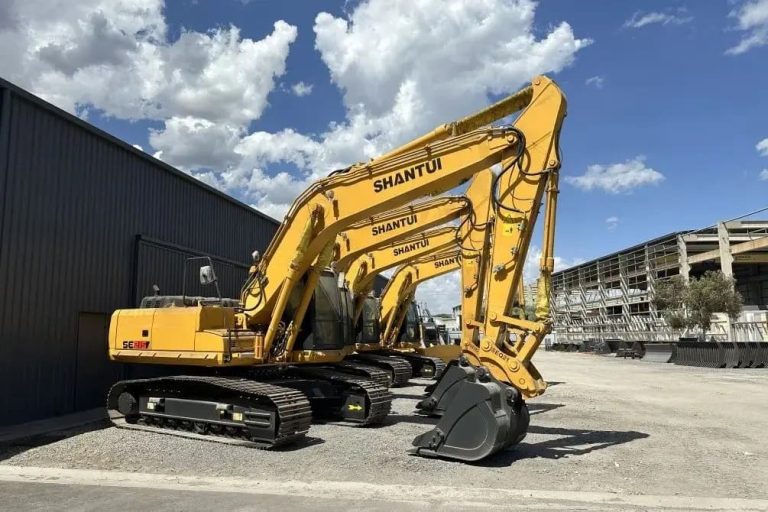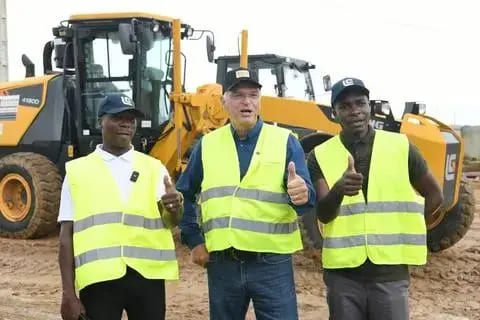At the “Real Warehouse” online conference organized by the Russian Construction Equipment Network, Alexander Kisser, head of the sales department of special equipment products at the Russian Composite company, talked about import substitution in the field of solid tires and the company’s prospects in this market.
Content summary:
Chinese and Indian brands account for 80% of the solid tire market, replacing European brands.
Composite’s annual sales of solid tires have increased more than 10 times
95% of Composite’s materials, parts and raw materials come from Russian suppliers.
Trends in the forklift and solid tire market
Composite has decided to start producing solid tires in 2022. Prior to this, the company conducted a comprehensive analysis of the supply and demand of forklifts in Russia, as the solid tire market is a secondary market.
“Currently, the demand for forklifts and solid tires in the Russian market is growing rapidly,” Alexander Kisser pointed out. “After some declines in the market in 2022, when European brands withdrew from the Russian market, the growth rate of forklift imports reached 55% in 2023. This trend continued in 2024, as evidenced by the large number of forklift displays at various Russian exhibitions.”
Another important trend in the market is the increasing demand for electric forklifts, which are more convenient and economical than diesel forklifts. Kisser said that electric forklifts accounted for about 50% of the forklifts imported into Russia in 2023. Correspondingly, the demand for matching tires is also increasing. In line with this trend, Composite launched a new series of tire sizes for electric forklifts in early 2024, and the products have been put on the market.
Speaking about the regional structure of equipment supply in the Russian market, Alexander Kisser pointed out that more than 95% of forklifts come from China. In the solid tire market, Indian and Chinese brands account for more than 80%, replacing European brands.
“There is also an increasing demand for non-marking tires, which do not contain carbon black and leave no marks on the ground,” Kisser said. “These tires are widely used in the pharmaceutical and food industries and in any warehouse with high requirements for floor cleanliness. Our product line already includes non-marking solid tires in the corporate orange color, which are very popular with customers.”
“It was only a matter of time before we entered the tire production”
Composite has been engaged in the research and production of wear-resistant rubber products for more than 30 years. The company’s main products are tracks for snowmobiles and construction equipment, pipes and pipe fittings for mining and processing complexes, fluid mechanization, etc.
“We have accumulated a lot of experience in the use of wear-resistant rubber, which is used for machines at different speeds and on different surfaces,” Kisser emphasized. “The purpose of snowmobile and construction machinery tracks is very similar to that of tires, but the structure is much more complex.”
Composite has its own laboratories, scientific research, production and technical departments, and can independently complete product research and development: from customizing the rubber formula for each product to the structural and design characteristics of the product.
“We started developing tires in January 2022, which is our new product,” said Alexander Kisser. “In that period, ‘import substitution’ became a hot word, and it still is. At exhibitions, we often meet representatives from China who ask us to buy their tires. To this, we have only one answer: we are not resellers, but producers.”
Reducing the dependence of Russian manufacturers on foreign suppliers of raw materials remains a pressing issue. In this regard, Composite has achieved remarkable results. Currently, 95% of materials, components and raw materials come from Russian suppliers, and there are no raw materials from unfriendly countries in the products, and solid tires are no exception.
“We can produce alkali-resistant, oil-resistant and gasoline-resistant tires according to customer needs”
When starting production, the company’s employees used high-end brand tires as a model. Pre-production tests lasted about a year, during which the tire structure was continuously improved, the equipment was upgraded, and the best rubber formula for the tire was selected.
“The initial testing took place in our factories and on our own forklifts, which we equipped with our own tires,” says Kisser. “Some of these machines are still using the earliest versions of the tires. Although the working conditions in our factories are not as severe as those of many customers, this is still a good result. At the same time, we have started testing in Belgorod, Lipetsk, Voronezh and Kursk regions. The proximity of these places allows us to quickly go to the test sites, take measurements and make necessary improvements to the tire structure.”
This makes Composite significantly different from its main competitors, which only import solid tires from Asian brands and cannot respond to many customer needs.
Another difference is that we offer a truly effective five-year factory defect warranty and a six-month warranty on tread wear.
All tires currently produced by the company are of three-ply design. Each layer is responsible for strength, elasticity and heat dissipation and is made of different types of rubber. “We produce tires that work in low temperatures and are suitable for northern regions,” Kisser continued. “In fact, we have already provided a batch of tires for a customer for testing, which began last winter and will continue this year and next. We can produce tires that are resistant to alkalis, oils, and gasoline. Customers may also require anti-static tires, which can prevent forklift electronic equipment and battery failures. Composite can meet these needs.”
Sales strategy and market expectations
Compared with the launch of composite solid tires in 2023, our sales have increased more than 10 times. “Regarding sales strategy, as a manufacturer, we first focus on the development of the distribution network,” Kisser emphasized. “Many Russian tire importers have begun to switch to our products instead of Asian brands and gradually reduce tire imports from Asia. It is convenient to work with us: there are no problems with payment, delivery is timely, we are always in touch – the advantages are countless.”
Composite’s head of sales of special equipment products expects the solid tire market to grow rapidly in the next few years, as the number of machines imported into Russia increases year by year.
Asian brands will continue to dominate the market, and the return of European brands is not worth looking forward to. Kisser believes that even if European brands were to return to the market now, their products would not be priced high enough to attract customers. Composite will continue to grow and take market share.
“We will continue to improve our product line, production capacity and, of course, brand awareness,” concludes Alexander Kisser,
“Our goal is to provide the market with high-quality forklift tires that can cope with the most extreme conditions.”

